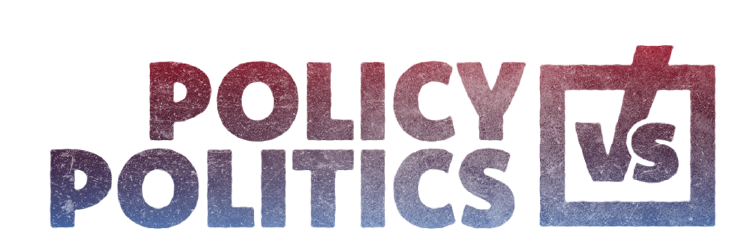Civic engagement describes a variety of activities, from voting in elections to attending community meetings. It enables individuals to take an active role in shaping the future of their communities and beyond.
Learn more about civic engagement my reading about examples of it, learning some that you can participate in, and obtain resources for getting involved.
Why Is Civic Engagement Important?
Civic engagement refers to the active political, social and economic participation of citizens in their communities and plays a crucial role in addressing social and economic challenges—like poverty, inequality and environmental degradation.
Feeling responsible for the well-being of the community and working towards positive changes is the driving force behind it. That feeling combined with action enables citizens to build strong, vibrant communities.
Additionally, it promotes democracy, encouraging citizens to vote for and elect representatives they believe will make impactful contributions and decisions on their behalf.
Civic Engagement Definition
“Civic engagement means working to make a difference in the civic life of our communities and developing the combination of knowledge, skills, values and motivation to make that difference. It means promoting the quality of life in a community, through both political and non-political processes.”
– Civic Responsibility and Higher Education
Civic engagement can include individual voluntarism, organizational involvement or electoral participation. It can involve direct efforts to address an issue, collaboration with others in the community to solve problems or interaction with institutions of representative democracy.
An important aspect of civic engagement is the ability, agency and opportunity for citizens to move seamlessly among these various forms of civic acts, enabling them to effectively contribute to their community.
The goal of civic engagement is to address public concerns and promote the quality of the community, and it is important to note that civic engagement comprises both communities working together, but also individuals working alone. It includes both political and non-political actions that work to protect public values or make a change in a community.
The Benefits of Civic Engagement
When people work together, leveraging their collective voices and actions, they can bring about meaningful change and work towards creating a better future for themselves, their families and future generations.
Additionally, civic engagement provides:
- Increased sense of community and belonging. Individuals who participate in civic engagement feel a greater sense of connection to their community and a stronger sense of purpose.
- Improved quality of life. By actively engaging in the political process, citizens can help shape public policies and decisions that directly impact their lives and communities.
- Better governance. Civic engagement can help ensure that elected officials are making decisions based on the needs and concerns of their community.
- Increased sense of responsibility. When individuals actively engage in their communities, they feel a greater sense of responsibility for the well-being of others, leading to a more caring and compassionate society.
Civic Engagement Examples
There are many different ways to get involved in civic engagement, from volunteering in a soup kitchen to serving on a neighborhood board association or even writing a letter to an elected official.
Here are a few examples of civic engagement:
- Voting. One of the most basic forms of civic engagement is voting in elections, as it gives citizens a say in the political process and allows them to appoint leaders who reflect their values and priorities.
- Volunteering. Volunteering gives back to the community and can make a large impact.
- Advocacy. From writing letters to elected officials to participating in rallies or protests or using social media to raise awareness about an issue, advocating allows citizens to make their voices heard.
- Activism. Activism involves working with others to organize campaigns or events, sit-ins or boycotts, to bring about change.
- Running for office. Citizens who wish to make a direct impact on the political process and shape policies and decisions often run for office
- Donating. Supporting the work of organizations, monetarily or otherwise, can have a beneficial impact on important issues.
Additional Resources
As a key aspect of a healthy democracy and a sign of a strong community, civic engagement plays an active role in creating positive change.
By participating in civic engagement—whether through volunteering or voting, participating in community meetings or donating to organizations—individuals can help build a better world for themselves and their communities.
Want to learn more about civic engagement? Here are some valuable resources to get started:
Book: Civic Engagement Across the Curriculum (2002) by Rick Battistoni offers faculty in all disciplines rationales and resources for connecting their service-learning efforts to the broader goals of civic engagement.
Book: Civic Responsibility and Higher Education (2000), editor Thomas Ehrlich collected essays from national leaders focused on civic responsibility and higher education.
Report: Civic Engagement Among Minority Youth report by The Center for Information & Research on Civic Learning & Engagement (CIRCLE) at Tufts University presents data on the civic engagement of youth, confidence in government and following public affairs and the news, by race and ethnicity.
Organization: AmeriCorps (formerly the Corporation for National and Community Services, CNCS) brings people together to tackle the country’s most pressing challenges through national service and volunteering.
PDF: Helping Your Child Become a Responsible Citizen (U.S. Department of Education) shares information on the values and skills that contribute to character and good citizenship, including guidance on what parents can do to help their children (K-12) develop strong character.
At Policy vs Politics, we believe that individuals should be able to easily obtain relevant information in its raw form, including verified sources, without any political spin, party affiliation or influence. By gaining quick access to short-form, raw data and information, individuals are able to draw their own conclusions as to whether a policy, law, regulation or action aligns with their own beliefs and are better equipped to engage in more active, knowledgeable and thoughtful dialogue.
Join in the conversation and participate in civic engagement with Policy vs Politics.
Follow us on socials (@plcyvspltc), check out our blog and learn how to get involved.

